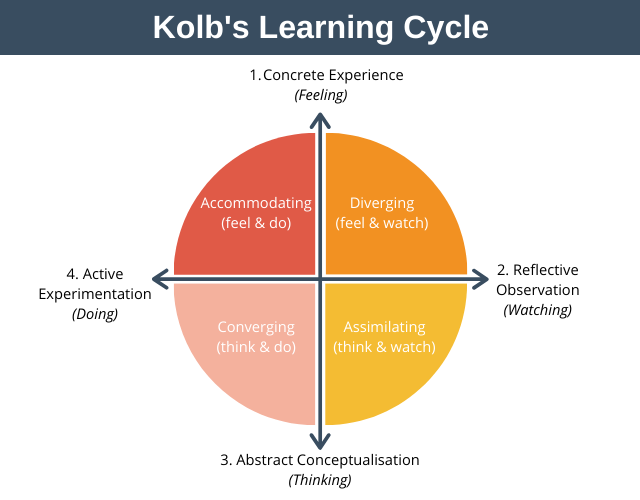David Kolb published the learning styles model in which he developed the learning style inventory in 1984.
Kolb’s experiential learning theory works at two levels: a four-stage learning cycle and four distinct learning styles. Much of Kolb’s theory has to do with the student’s internal cognitive processes.
Kolb states that learning involves the acquisition of abstract concepts that can be applied flexibly in a variety of situations. In Kolb’s theory, the impetus for the development of new concepts is provided by new experiences.
Tags: 4 learning styles, david kolb, experiential learning, four types of learning models, kolb learning style inventory, learning styles, Learning Styles test, personality test





Awesome
Wonderful 👍
Awesome
It’s a very interesting questionnaire
It is quite an insightful and interesting Questionnaire to go through.
I enjoy going through the questions.
Very interesting and amazing tool.
It is intriguing and answer these well thought out open closed ended questions
Very interesting questioner.
A very interesting questioner.
This has just been a revelation to me, so true and alive.
The questionnaire was awesome and tactical in thinking critically.
powerful session indeed
I’m so excited! what a brilliant set of open questions.
I loved the questionnaire. It is incredible!